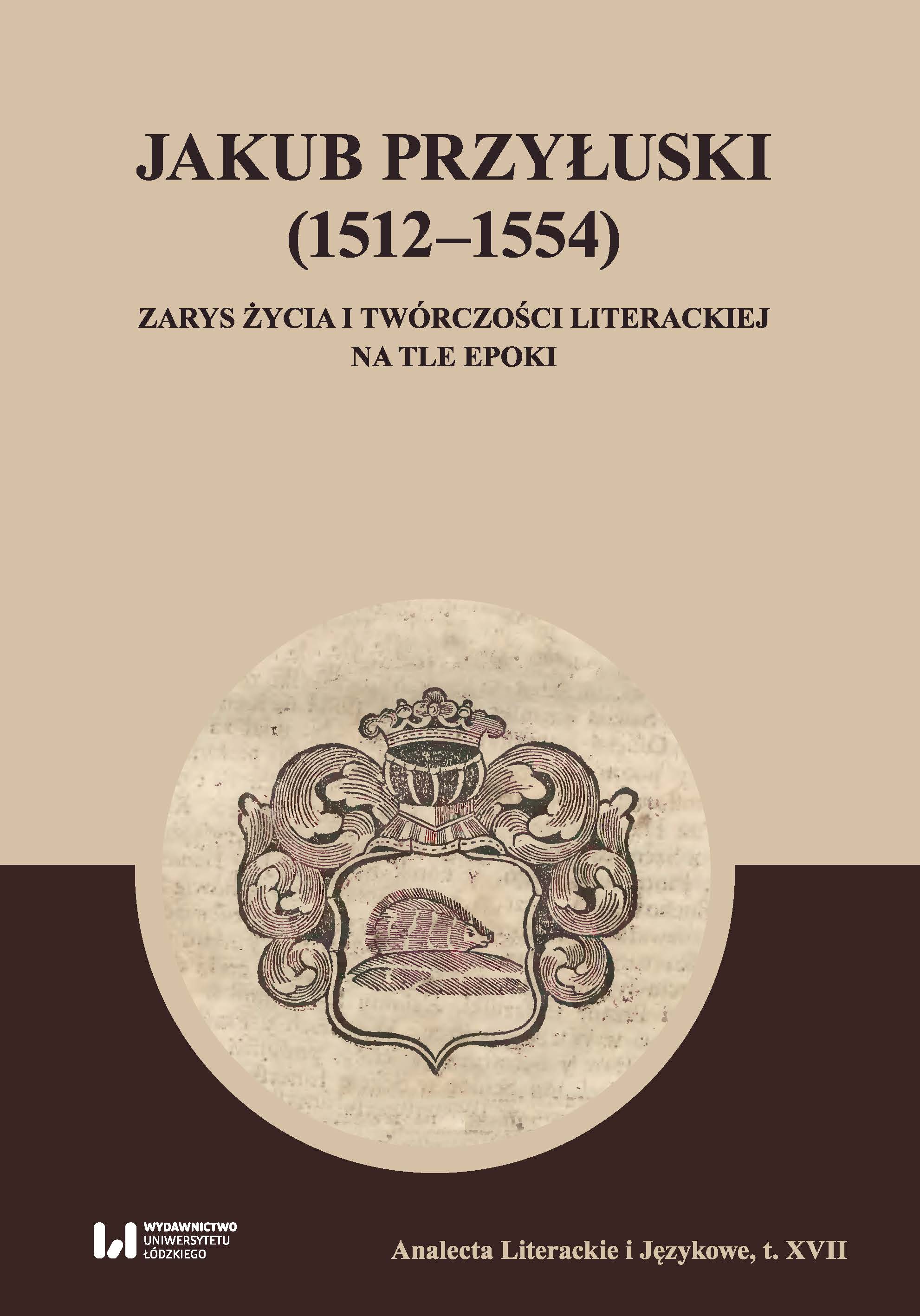„Leges seu statuta ac privilegia Regni Poloniae” – klasyka prawa polskiego, najsłynniejsze dzieło Przyłuskiego. Charakterystyka utworu i dzieje jego sławy
"Leges seu Statuta ac privilegia Regni Poloniae" — a classic of Polish law, the most famous work of Jakub Przyłuski. Characteristics of the work and the history of its fame
Author(s): Michał Kuran
Subject(s): History, Language and Literature Studies, Law, Constitution, Jurisprudence
Published by: Wydawnictwo Uniwersytetu Łódzkiego
Keywords: Jakub Przyłuski; codification of rights; Leges seu Statuta
Summary/Abstract: The study is devoted to the most important work of Przyłuski, “Leges seu Statuta ac privilegia Regni Poloniae”. It discusses the genesis of this set of laws, taking into account the will of Sigismund II August as the initiator of this undertaking, the intellectual environment (including Andrzej Frycz Modrzewski, Stanisław Orzechowski, Andrzej Trzecieski) and the political environment (supporters of the execution movement), in which the work was created and thanks to which could take on meaning. The existence of two editorial offices and editions of the work was indicated (from 1548 and from 1553). Presenting the results of the research of his predecessors (Bolesław Ulanowski, Bolesław Boczek, Stanisław Skimina, Henryk Grajewski), the article emphasizes the dependence of “Leges seu Statuta” on Roman law, which was revealed, among others, by under construction. Having presented the six-part structure of the set of laws, as well as the presence of extensive commentaries on current religious and political disputes in the work, the article highlights selected issues discussed by Przyłuski, such as: the world order and the role of divine law in it, the role of lawyers in the functioning of the state, the essence of nobility , organization of cities and life of peasants. At the end of the discussion, the article shows the reasons why the work was not allowed to use in the judiciary (extensive excursions on current problems, anti-Catholic pronunciation, undisguised support for the Reformation). It is also about the use of “Leges seu Statuta” by authors of subsequent legal works, especially by Jan Herburt, the author of Statutes and crown privileges.
Book: Jakub Przyłuski (1512–1554). Zarys życia i twórczości literackiej na tle epoki
- Page Range: 43-56
- Page Count: 14
- Publication Year: 2022
- Language: Polish
- Content File-PDF

